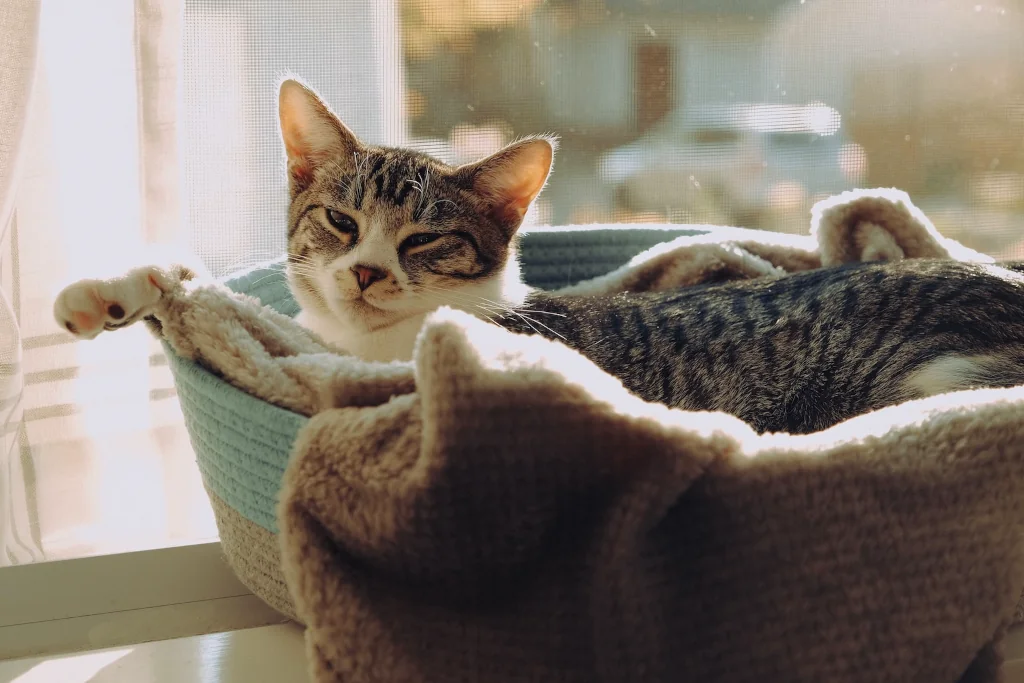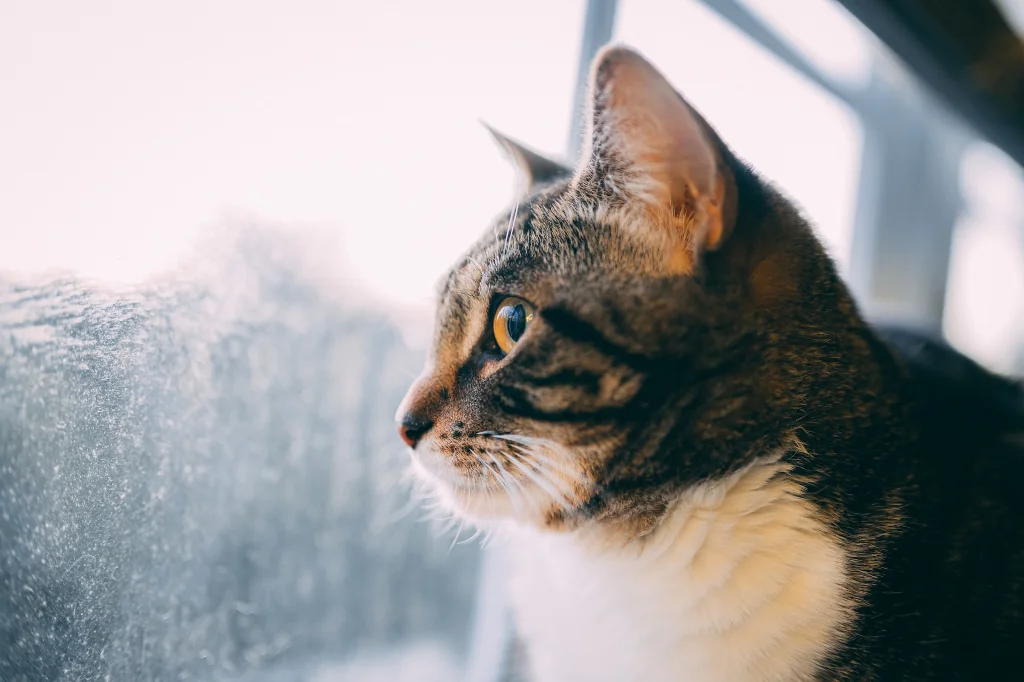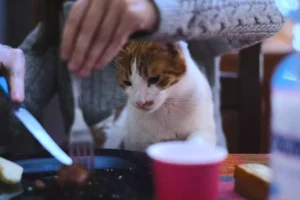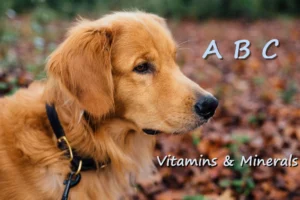Disclosure: We may earn a commission from helpful, relevant links in our content. No cost to you. See our privacy policy.
Have you ever watched your cat chow down on its food and wondered, “Is she getting everything she needs from this meal?” Cats, just like humans, require a balanced diet, complete with specific vitamins and minerals to thrive.
But sometimes, the commercial pet food aisle can be a dizzying maze of options, all promising optimal health for your furry friend. Figuring out what’s beneficial and what might be missing can feel like an uphill task.
Fear not, cat guardians, we’re here to unscramble the dietary code for your feline’s health. We don’t promise a magic solution, but a credible, well-informed guide to help you make wise dietary choices for your kitty.

What Are the Essential Vitamins and Minerals for Cats?
Let’s start with understanding what your feline friend needs for a balanced diet. Cats are obligate carnivores, meaning they derive their necessary nutrients from a primarily meat-based diet.
Vitamin A. A crucial vitamin for cats, it promotes good vision, growth, immune function, and fetal development. Unlike dogs or humans, cats can’t convert beta carotene from plants into vitamin A, they need a direct source, usually found in the liver, fish oils, and egg yolks.
B Vitamins. This group of vitamins plays a significant role in a cat’s health. For instance, Thiamine (B1) aids in carbohydrate metabolism and has a vital role in neural function. A deficiency can lead to neurological issues and weight loss.
Vitamin D. Cats can’t synthesize vitamin D through their skin like humans can. They rely on dietary intake, particularly from fish oils and certain kinds of liver.
Taurine. An essential amino acid, crucial for cats. It supports their cardiac function, vision, and reproduction. You can find it in animal-based proteins.
Calcium and Phosphorus. These minerals are vital for healthy teeth and bones. Both should be provided in a specific ratio for optimal absorption.
I still remember when Smokey, my laid-back tabby, faced some health issues way back. He was losing weight and appeared lethargic. After some tests, the vet concluded that Smokey’s diet lacked Taurine. This realization hit me hard, I’d been unknowingly missing out on a crucial component in his diet.
Post this incident, I spent hours researching and understanding cat nutrition. Since then, I’ve been mindful about Smokey’s meals, ensuring they’re rich in all the necessary nutrients. A content, healthy cat is, after all, a delight to have around!
This journey inspired me to share the importance of feline nutrition. Learning these essentials is your first step towards providing your beloved cat with a healthy and satisfying diet. Let’s explore further how to recognize if your cat might be deficient in any of these nutrients and what to do about it.
Signs of Vitamin or Mineral Deficiency in Cats
As attentive cat guardians, it’s important to understand and recognize potential signs of nutritional deficiencies in our feline friends. Being watchful for these signs can make a big difference in your cat’s wellbeing.
- Changes in Appetite and Weight. If your cat is displaying unusual changes in its appetite—either eating too much or too little—this could be the initial sign of a vitamin or mineral deficiency. This may also be mirrored in your cat’s weight, resulting in either weight gain or loss.
- Unusual Behavior. Another significant sign to look out for is a change in your cat’s behavior. Lethargy, for instance, could signal a deficiency in vitamins like B12 that boost energy levels. On the other hand, hyperactivity might suggest an excess of certain minerals.
- Deteriorating Coat Health. The health of your cat’s coat can be a reflection of their internal nutrition. A dull, flaky coat or excessive shedding may indicate a deficiency in essential nutrients, such as Omega-3 fatty acids or Vitamin A.
- Digestive Discomfort. Chronic diarrhea or constipation can be a red flag for imbalances in your cat’s diet. This could suggest that your cat isn’t getting the right mix of fiber, vitamins, or minerals.
- Vitamin-Specific Symptoms. Now, let’s break down the signs of specific vitamin or mineral deficiencies:
- For instance, Vitamin A deficiency could manifest as night blindness, weight loss, or a poor coat condition.
- B Vitamins are vital for a cat’s overall well-being, and a lack of them could lead to anemia, skin lesions, or in severe cases, neurological issues.
- Lastly, Taurine, an essential amino acid for cats, is critical for their heart health, reproductive function, and growth in kittens. Taurine eficiency can cause dilated cardiomyopathy, reproductive failure, or growth retardation in kittens.
It’s essential to remember that these signs could also point to other health issues. Therefore, any significant changes in your cat’s behavior or physical health should prompt a visit to your veterinarian. Early detection can help address deficiencies and adjust your cat’s diet accordingly.

Are Multivitamins Necessary for Your Cat’s Diet?
The idea of multivitamins for cats can seem tempting. After all, if they’re good for us, they must be good for our pets too, right? But the answer isn’t that straightforward.
Generally, a well-balanced diet should provide your cat with all the necessary nutrients, making multivitamins unnecessary in such cases. In fact, an excess of certain vitamins, like Vitamins A and D, can be harmful to your cat. So, unless your vet prescribes them, it’s usually best to steer clear of over-the-counter supplements.
However, there may be specific situations where supplementation is advised. For example, cats on homemade diets, certain medical conditions, or older cats may require additional nutrients.
Here’s a unique consideration: unlike dogs or humans, cats can’t synthesize essential nutrients like Taurine or Vitamin A from plant sources. So, if you’re feeding your cat a homemade vegetarian or vegan diet, they’re likely missing out on these critical nutrients.
In such cases, targeted supplementation, under a veterinarian’s guidance, can be crucial to prevent serious health issues. You can easily get Taurine and Vitamin A supplements for your cats.
Your cat’s health and wellbeing should always be the priority over any dietary trend or fad. Let’s continue on to understand what foods can provide your feline friend with these essential nutrients.
Which Foods Provide Essential Vitamins and Minerals for a Cat?
Decoding the complex world of feline nutrition can seem daunting. But don’t worry! There are simple ways to ensure your cat gets all the essential vitamins and minerals they need.
1. Meat: The Ultimate Source of Taurine and Vitamin A
The most important thing to remember about cats is that they’re obligate carnivores. This means that their bodies are designed to get nutrients from meat.
So, it’s no surprise that meat is the most abundant source of essential nutrients for cats, including Taurine and Vitamin A.
When I say meat, I don’t just mean steak or chicken breasts. Organ meats, such as liver and heart, are exceptionally rich in many nutrients. For instance, my cat Smokey goes crazy for chicken liver. It’s a weekly treat for him, and I feel good knowing it’s a source of iron and Vitamin A.
2. Fish: For Omega-3 and Vitamin D
Fish, such as salmon and sardines, are excellent sources of Omega-3 fatty acids and Vitamin D, which are crucial for a cat’s heart health and bone strength. Just remember that fish should be served cooked and in moderation, due to concerns about mercury and other toxins.
3. Cat-Approved Vegetables: for Antioxidants
While cats get most of their nutrients from animal products, certain vegetables can provide beneficial antioxidants. Carrots and green beans, lightly steamed and finely chopped, can be a great supplement to your cat’s diet.
Remember, vegetables should only make up a small portion of a cat’s diet and always need to be served cooked to aid digestion.
4. Commercial Cat Foods
Quality commercial cat foods are designed to be nutritionally complete, so they typically include all the essential vitamins and minerals your cat needs. When selecting cat food, look for those that list a source of animal protein (like chicken, beef, or fish) as the first ingredient.
Speaking of nutritionally complete foods, one product that stands out is Purina Pro Plan High Protein with Probiotics Dry Cat Food. This is a brand we confidently recommend due to its quality ingredients and balanced formulation. This product boasts real chicken or salmon as the primary ingredient, ensuring a high-protein diet for your cat. The formula is fortified with live probiotics, and enriched with omega-6 fatty acids and vitamin A to nourish your cat’s skin and coat. It’s a trustworthy choice, offering both nutrition and a flavor that cats appreciate.
Related: Cat Food Ingredients Guide
5. Special Considerations for Homemade Diets
For homemade diets, it’s not just about what you include in the diet, but also the quality and the ratio of those ingredients. Always ensure that meat makes up at least 50% of the diet since cats are obligate carnivores.
Another practical tip would be to diversify the protein sources you offer, not just sticking to one type of meat. This can help provide a broader spectrum of nutrients and reduce the risk of any potential dietary imbalances.
Remember, a homemade diet requires a significant commitment and thorough research. Don’t shy away from seeking professional help to ensure your cat gets all the nutrition it needs.
If you’re preparing a homemade diet for your cat, it’s vital to ensure it’s balanced and nutritionally complete. Consult with a vet or a pet nutrition expert to identify the right mix of foods and any necessary supplements.
Remember my anecdote about Smokey and his love for chicken liver? I only learned about the benefits of organ meats through extensive discussions with our vet.
Ultimately, the best food for your cat will depend on their specific needs. Regular check-ups with your vet are crucial to ensure that your cat is getting a balanced diet and to make adjustments as necessary. Now, let’s address a critical question: Can you give your cat too much of a good thing?
Suggested read: Cat Food Labels
Can You Overdose a Cat on Vitamins or Minerals?
Just as with humans, it’s certainly possible to overdose cats on certain vitamins and minerals. In the world of pet nutrition, there’s a fine line between an adequate supply of vitamins and a potentially harmful excess.
For example, while Vitamin A is essential for cats, an overdose can lead to Vitamin A toxicity, which may cause severe health issues like bone deformities, dry skin, and even neurological problems. Likewise, too much calcium can interfere with the absorption of other vital minerals, potentially leading to an imbalance in your cat’s overall nutrition.
These instances are especially common when cat owners unnecessarily supplement their pets’ diets without the guidance of a veterinarian or a pet nutrition expert.
The best way to avoid vitamin or mineral overdose in cats is by ensuring they eat a balanced diet with all the necessary nutrients. If you’re considering adding supplements to your cat’s diet, always consult with your vet first. They can provide the most accurate information based on your cat’s specific needs.
Suggested read: The Role of Carbs in a Cat’s Diet
FAQs
Does my cat need mineral supplements?
While a cat’s nutritional needs can usually be met with a balanced and varied diet, some situations may necessitate mineral supplements. For instance, if your cat is on a homemade diet, it might not be getting all the required minerals. Always consult a vet before introducing any supplements.
Suggested read: The Role of Fats in a Cat’s Diet
What vitamins help improve my cat’s fur quality?
Vitamin A and B-complex vitamins play significant roles in maintaining a cat’s fur quality. Omega-3 fatty acids, although not a vitamin, also contribute to a healthy, glossy coat. These can be found in foods like fish and certain commercially prepared cat foods.
Can overdosing on vitamins harm my cat?
Overdosing on certain vitamins, like Vitamin A or D, can indeed be harmful to your cat, leading to a range of health issues from skin problems to severe bone deformities. Always consult your vet before introducing any new supplements into your cat’s diet.
Alex, a passionate animal lover, has experience in training and understanding animal behavior. As a proud pet parent to two dogs and three cats, he founded AnimalReport.net to share insights from animal experts and expand his knowledge of the animal kingdom.




